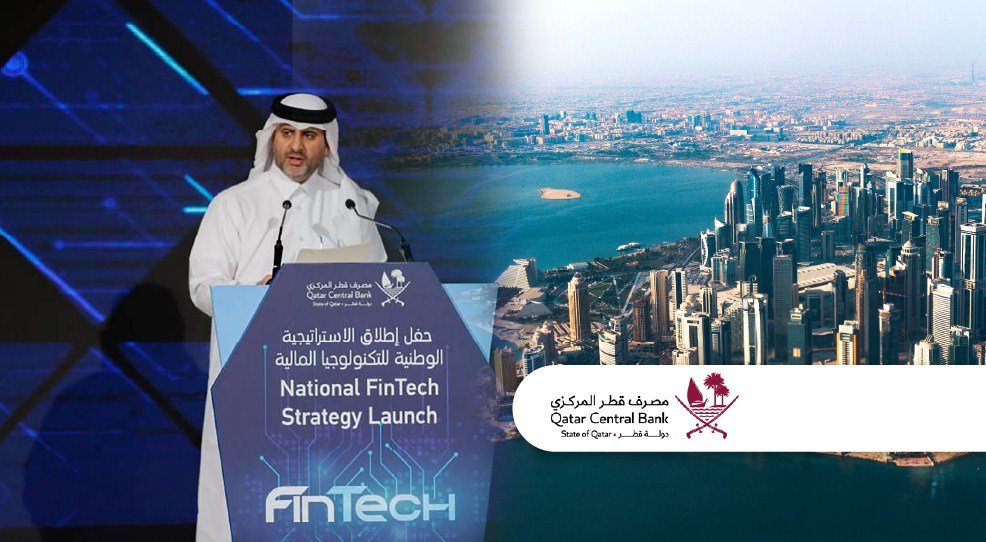Qatar’s banking sector is undergoing a remarkable transformation as it embraces new technologies, innovative payment methods and novel business models to keep up with changing customer preferences and global trends, according to a new report by PwC Middle East.
Fintech adoption and collaboration
The report, titled Qatar Banking Sector 2023, provides insights and predictions for the future of the banking sector in Qatar, discussing key financial indicators, emphasizing the importance of digital transformation and sustainability measures in the sector, and outlining the different initiatives launched by the government to foster a strong fintech ecosystem.
The report states that despite facing some challenges, the Qatari banking sector is posting positive financial performance with growth in balance sheet, financing portfolio as well as operating income and profit. In 2022, assets increased by 3.6%, reflecting expansion in the banks’ overall holdings, while gross loans and advances grew by 3.3%, indicating increased lending activities. Deposits rose by 2.7%, showcasing continued inflow of customer funds. Overall, gross income surged by 25.6% amid rapidly rising interest rates, while operating income and profit before tax increased by 18.1% and 20.2% respectively, showcasing improved operational efficiency.
The sector’s solid financial performance comes at a time when Qatari banks are upping their core banking activities with initiatives aimed at digital innovation, data infrastructure establishment, and sustainability practices.
The report notes that banks are introducing contactless, personalized, and diverse digital payment options to align with customers’ changing demands. Incumbents are also embracing open banking in a bid to enhance banking experience to their customers, as well as partners and emerging fintech players. One notable partnership that highlights the commitment to improving customer experience is the collaboration between the Qatar National Bank (QNB) and blockchain startup Ripple, a partnership that culminated in the launch of a remittance service that delivers near real-time international transactions.
Fintech strategy and regulation
The banking sector in Qatar is also benefiting from the support of the government and the central bank, which have launched several initiatives to promote fintech development and adoption in the country.
In March 2023, the Qatar Central Bank (QCB) launched the Qatar Fintech Strategy 2023, which aims to support the diversification and innovation in the financial sector and invest in a knowledge-based economy in line with the Qatar National Vision 2030.
The strategy is based on four main pillars: the establishment of a pioneering infrastructure including advanced regulatory rules and electronic platforms supporting the development of fintech, prioritizing innovation and fintech sector growth, especially Islamic fintech and sustainable development, as well as insurance technology, empowering companies and enhancing their performance by using fintech solutions, and making Qatar a fintech hub, aided by the country’s leading educational infrastructure, and providing smooth mechanisms and support for the transition towards cash-less transactions.
The QCB has also introduced several regulatory and supervisory measures to cope with the new challenges and reduce regulatory gaps in the fintech sector, such as the introduction of electronic wallets, instant payments and transfers, and supporting digital banking services by issuing the first local prepaid electronic payment card (Himyan).
The QCB has also established a fintech regulatory sandbox, which allows fintech companies to test their innovative solutions in a controlled environment, and a fintech hub, which provides a platform for collaboration and knowledge sharing among fintech stakeholders.
Sustainability and ESG practices
Another key aspect of the Qatari banking sector’s transformation is the adoption of sustainability and environmental, social and governance (ESG) practices, which are becoming increasingly important for investors, customers and regulators.
The report states that Qatari banks are developing comprehensive ESG policies, risk management frameworks, and annual reports, as well as aligning their strategies and operations with the United Nations Sustainable Development Goals (SDGs) and the Paris Agreement on climate change.
Qatar Islamic Bank (QIB) is one particular player that has been committed to sustainability, as it has issued several green sukuk (Islamic bonds) to finance renewable energy and energy efficiency projects, as well as social sukuk to support humanitarian causes. QIB has also been recognized as the best Islamic bank in the world for ESG by several international organizations.
The report concludes that the Qatari banking sector is well-positioned to leverage the opportunities and overcome the challenges posed by the changing landscape of the financial industry, as it continues to innovate, collaborate and integrate fintech and sustainability into its core activities.

